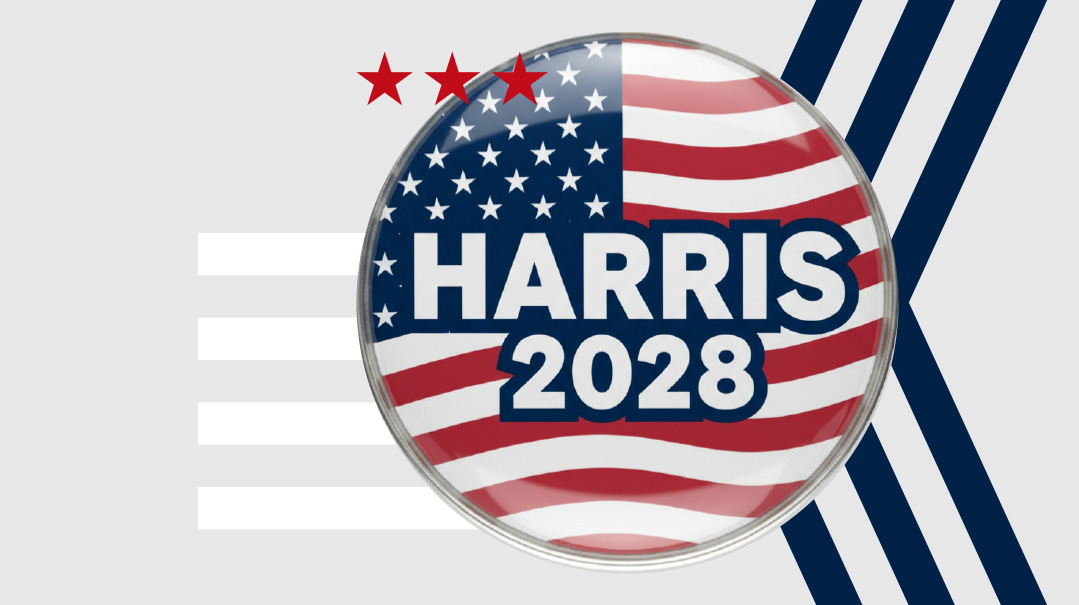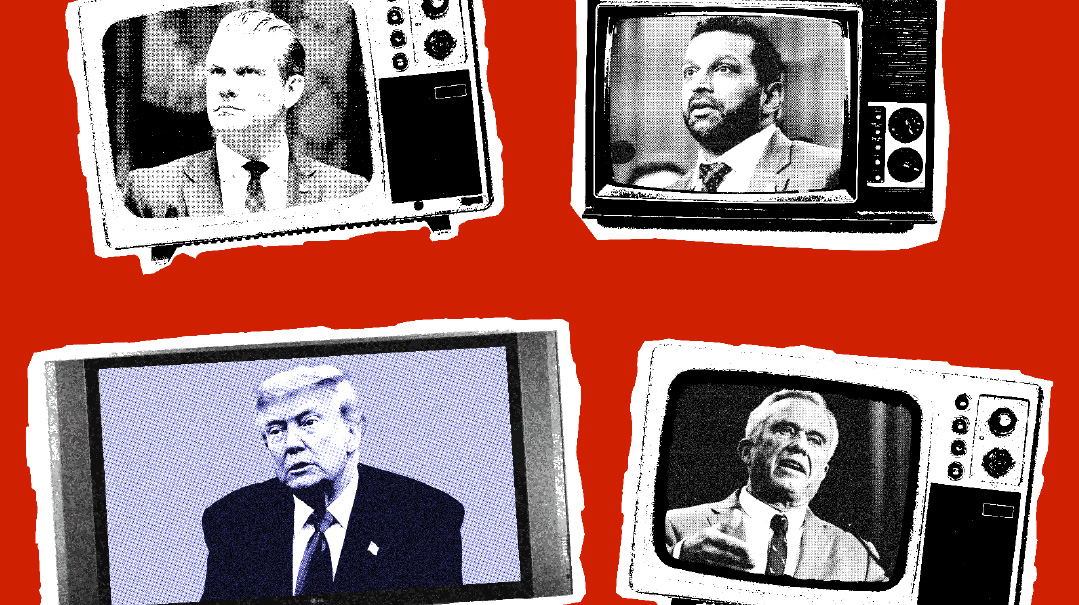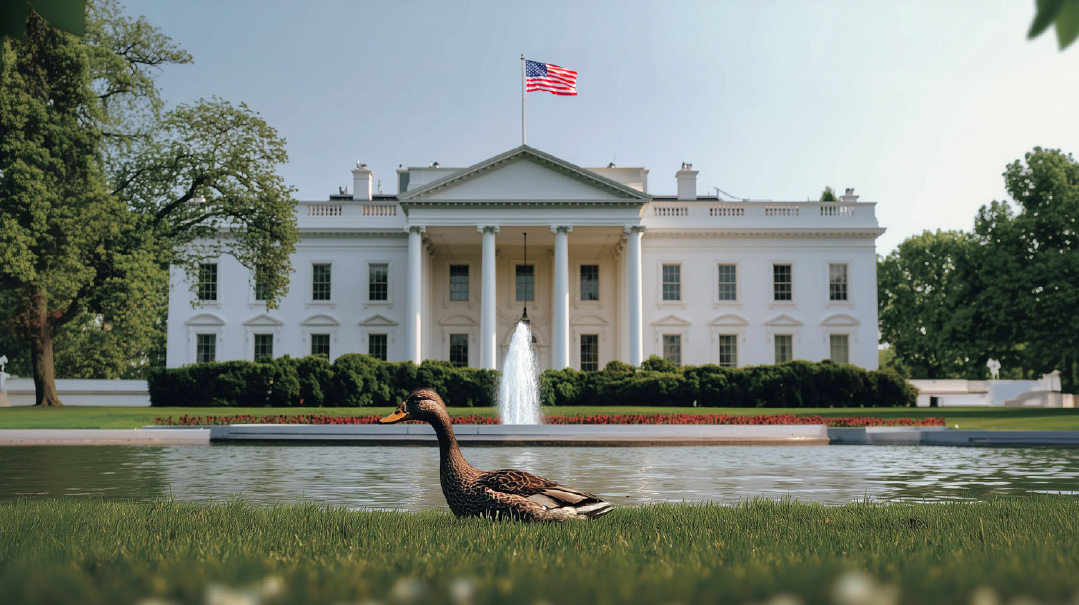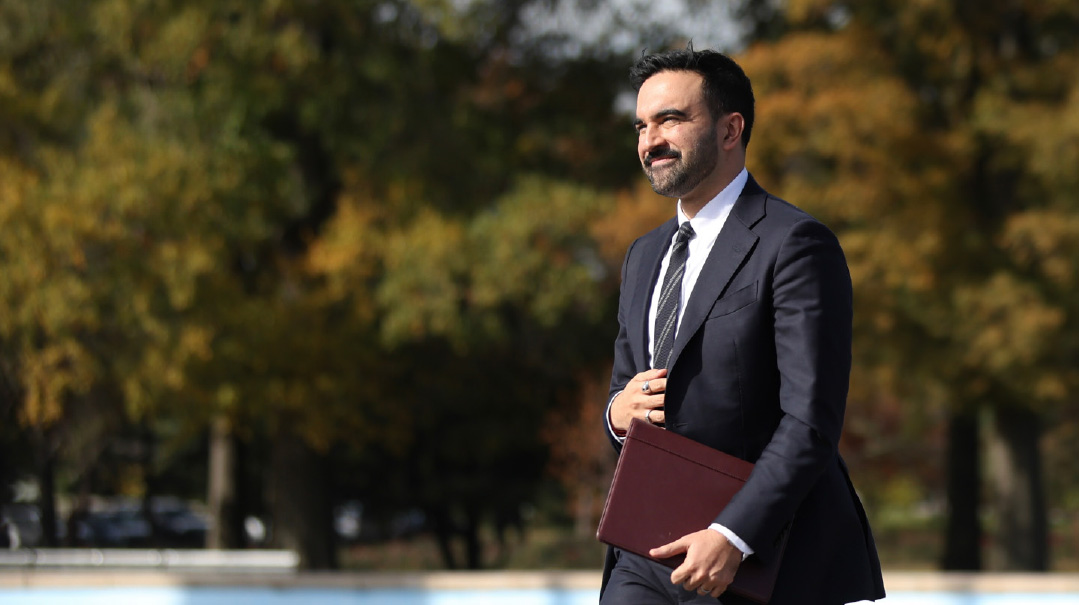Trump’s Race Against the Clock

An insider’s guide to politics
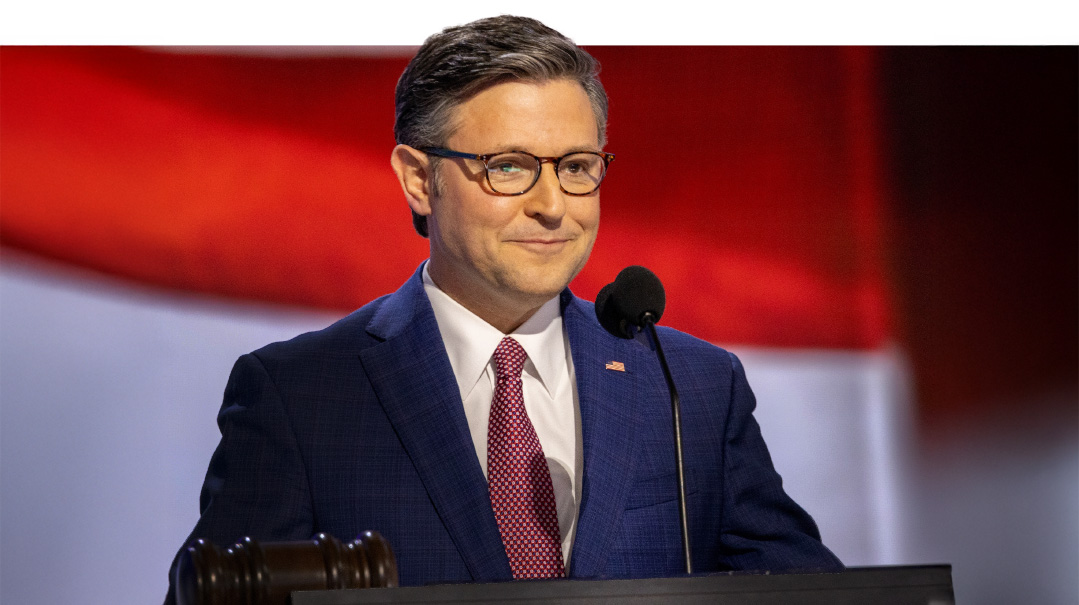
Photo: SHUTTERSTOCK / MAXIM ELRAMSISY
AS
longtime Republican Senate leader Mitch McConnell likes to say about the consequences of elections, “Winners make policy and losers go home.”
Donald Trump unequivocally won a mandate to enact his policies in the November election. Based on exit polls, it’s fair to say that in 2024, it was the “economy and immigration, stupid” — to paraphrase James Carville — that made voters choose Trump.
But even a strong mandate won’t last. After his 1964 landslide win, President Lyndon Johnson told his advisors that he would lose strength in the polls at the rate of one million votes per month, and that he had a diminishing window to get things done.
So when the Oval Office clock starts ticking for Trump, the key question will be: Will he get to execute his mandate, or will he be dragged down by the competing interests and rival power bases that jockey for influence in every administration?
The Pre-Game
As I discussed in my last column, Trump’s power is in limbo while he awaits his inauguration. During this transition period, he has two critical objectives. The first is to build his cabinet, to execute his policies; and the second is to keep his base energized as long as possible, to stretch out the honeymoon period.
Although Trump may appear to have had a bumpy ride so far in filling his cabinet, it has gone no differently than with most administrations. Most presidents struggle to have all their cabinet nominees approved, and it’s not uncommon for those picks to embarrass the president. Even founding fathers like John Adams couldn’t get all their nominees approved. Barack Obama had three of his nominees withdraw their names from consideration, and Bill Clinton had five. Although Matt Gaetz’s withdrawal from consideration for attorney general may be embarrassing, it is par for the course.
Keeping his base energized isn’t something Trump needs help with. He is superb at it, and his approval ratings reflect that. A recent Gallup poll showed 97% of Republicans approving of Trump’s transition, compared to 86% in 2016.
So if he’s managing the pre-game well enough, what does he have to worry about?
The Clock Starts Ticking
Once Trump is inaugurated, the clock starts ticking, and he will face a sprint, not a marathon, to get as much done as he can.
Presidents since Franklin Delano Roosevelt have used their first 100 days as a project timeline to accomplish as much as possible. In his first 100 days in office in 1933, FDR passed 76 laws. He later explained how psychologically important for the nation it was to get as much done as possible in the opening days of his presidency. In 2016, President Trump celebrated signing more than 30 executive orders in his first 100 days, comparing how many more he had signed to those of his predecessors. President Biden used his first 100 days to sign the $1.9 trillion American Rescue Plan Act.
The first 100 days isn’t reserved for presidents. You will hear governors, mayors, and members of Congress trumpet their first 100 days as well. When I was promoted to a new position, a colleague of mine gave me a book called The First 90 Days, which is all about the limited amount of time one has to make a positive first impression in any new job.
Of course, getting off on the right foot depends on a host of other factors as well. If your new work environment is filled with lousy coworkers, chaos, and infighting, it will make your job even more difficult. That is only accentuated for an incoming president.
Tech vs. MAGA
There is infighting already happening that could slow Trump down. The tech world that helped Trump win in 2024 is facing off against the MAGA crowd that helped him win in 2016.
The tech crowd is led by Vivek Ramaswamy and Elon Musk, two powerful “disrupters” who helped mobilize their bases to get Trump elected. This crowd cares about cutting government spending and bureaucracy. Trump has given these two wide latitude to get this done through the newly created Department of Government Efficiency.
The MAGA leaders include people like Steve Bannon who were instrumental in building Trump’s initial brand in 2016. This group has right-wing views on nearly every issue — small government, immigration reform, and many others, long before the tech group was ever involved with Trump.
Tensions between the two groups boiled over last week when Trump sided with the techies in favor of the H1-B visa program for highly skilled workers. MAGA movement leader Laura Loomer went on Steve Bannon’s show to rail against Elon Musk: “What does it mean for our constitutional republic if technocrats with billions have unfettered access to our leaders while being cordial with adversaries like China and Iran?”
Trump can’t afford to have infighting among his loyalists. It hurts his ability to craft a media narrative and diminishes the strength of his team. Dealing with those problems will cost precious time on the ticking clock.
Unifying the Team
Support within Congress is the key to any mandate’s success. Enacting public policy can’t be done solely through executive order; it also requires the House and Senate.
But Republicans hold a smaller majority in the House of Representatives in this Congress — only four votes. This leaves little margin for error and makes every junior representative a potential power player. The more Trump can keep Republicans in the House unified, the better able he will be to speed up passage of serious legislation in his first 100 days.
The first test came this past Friday, when Speaker Mike Johnson ran for reelection in the House. According to The Washington Post, Johnson struggled to cobble together support at first; three Republican House members voted against him. Trump personally intervened, and two of the three flipped their votes.
If Trump can stay on this track, it will keep the House united and speed up his ability to get things done.
Will He Beat the Clock?
The infighting between tech and MAGA will likely stop. More unites them than divides them. The press enjoys drama and will continue to try to gin it up, but I don’t believe that debates like this, which are ultimately over public policy, will snowball into divisions that derail Trump’s agenda.
I believe Trump’s early arm-twisting in Congress is a sign that he is dedicating the necessary time and effort to move his party. He may very well need to keep reinforcing Speaker Johnson and dealing with House troublemakers, but I don’t think that’s a bad thing. In his first term, many items got derailed because he didn’t focus on lobbying Congress. The more he does this, the faster his agenda will move.
The clock will tick faster once he’s inaugurated, but so far he is demonstrating his ability to move his mandate forward, and maybe even move it quickly.
(Originally featured in Mishpacha, Issue 1044)
Oops! We could not locate your form.


